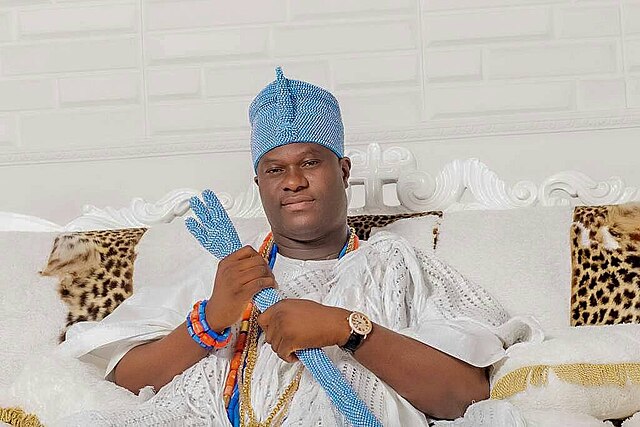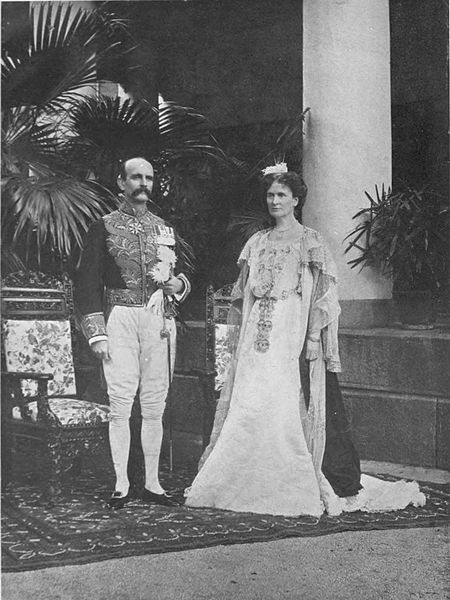Nigerian traditional rulers
Nigerian traditional rulers often derive their titles from the rulers of independent states or communities that existed before the formation of modern Nigeria. Although they do not have formal political power, in many cases they continue to command respect from their people and have considerable influence in their community.
Image of a 16th-century ruler (Oba) of the Benin Empire
The Oba of Lagos with a delegation of Naval Officers in June 2006
Sa'adu Abubakar, Sultan of Sokoto and Sarkin Musulmi of Nigeria, current Co-Chair of the National Council of Traditional Rulers
Adeyeye Enitan Ogunwusi, Ooni of Ife, current Co-Chair of the National Council of Traditional Rulers
Nigeria, officially the Federal Republic of Nigeria, is a country in West Africa. It is situated between the Sahel to the north and the Gulf of Guinea to the south in the Atlantic Ocean. It covers an area of 923,769 square kilometres (356,669 sq mi), and with a population of over 230 million, it is the most populous country in Africa, and the world's sixth-most populous country. Nigeria borders Niger in the north, Chad in the northeast, Cameroon in the east, and Benin in the west. Nigeria is a federal republic comprising 36 states and the Federal Capital Territory, where the capital, Abuja, is located. The largest city in Nigeria is Lagos, one of the largest metropolitan areas in the world and the largest in Africa.
Nok sculpture, terracotta
Royal Benin ivory mask, one of Nigeria's most recognized artifacts. Benin Empire, 16th century.
Depiction of Benin City by a Dutch illustrator in 1668. The wall-like structure in the centre probably represents the walls of Benin, housing the Benin bronze decorated historic Benin City Palace.
The Lord and Lady Lugard, 1908








